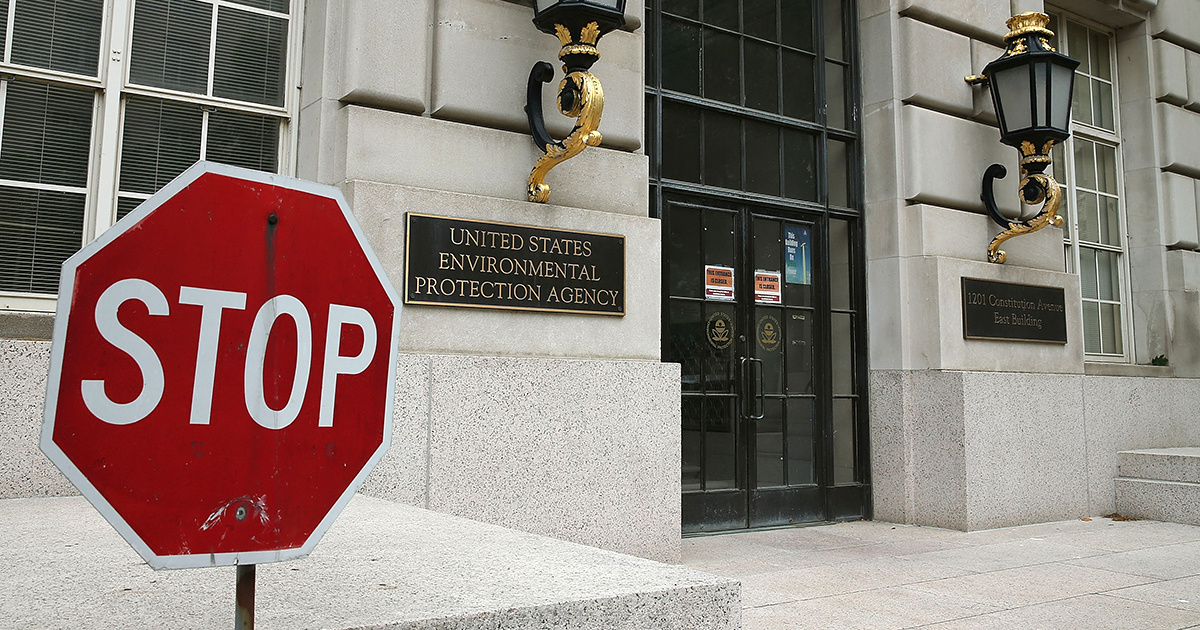

Civil fines charged to polluters by the U.S. Environmental Protection Agency (EPA) under the Trump administration fell 85 percent during the last fiscal year when compared to the average annual amount charged over the past two decades, The Washington Post reported Thursday. That makes last year the lowest average year for penalties since 1994.
The numbers come from an analysis of agency data conducted by former EPA Office of Enforcement and Compliance Assurance head Cynthia Giles, who served the agency during the Obama administration and is now a guest fellow at the Harvard Environmental and Energy Law Program. Giles and other former officials warned that a decline in fines put America’s environment and health at risk, since high fines help ensure it is costlier for industry to break the law than follow it.
“The public expects EPA to protect them from the worst polluters,” Giles told The Washington Post. “The Trump EPA is not doing that. What worries me is how industry will respond to EPA’s abandonment of tough enforcement.”
Last year’s $72 million in civil fines was 85% below the average for the two decades before Trump took office. https://t.co/seKCJ3zAoQ
— Environmental Integrity Project (@EnviroIntegrity) January 24, 2019
Over the past two decades, the EPA charged an average of more than $500 million a year in fines, adjusted for inflation. During the last fiscal year, that number fell to $72 million. The cost of complying with EPA regulations also fell last fiscal year, from an average of $7.8 billion over the past two decades to $5.6 billion.
The analysis was reviewed by the Environmental Integrity Project, whose executive director, Eric Schaeffer, said it was a good snapshot of the Trump EPA’s approach, since it covered the first fiscal year when only Trump had been in charge and fewer cases would have carried over from the Obama administration.
“By that time, you should have momentum and you should be making your mark on the program,” Schaeffer told The Washington Post.
In a statement emailed to CNN, however, current Assistant Administrator for EPA’s Office of Enforcement and Compliance Assurance Susan Bodine took issue with the analysis:
“The Washington Post’s January 24 article about EPA enforcement suffers from serious analytic errors. Let there be no mistake — EPA enforcement will continue to correct non-compliance using all the tools at its disposal, including imposing civil penalties to maintain a level playing field and deter future misconduct, To suggest otherwise undermines our enforcement efforts and fails to acknowledge to good work performed by EPA enforcement staff every year.”
One of Bodine’s complaints was that the average civil fines calculated for the past two decades included outliers such as the year that penalties paid by BP following its major oil spill raised the yearly total by $5.7 billion. However, The Washington Post calculated that even with that outlier excluded, the last fiscal year’s average fines would still be around 55 percent below the average for the last 20 years.
Former coal-lobbyist Andrew Wheeler, who is currently heading the EPA as acting administrator and has been nominated by the president to run the agency permanently, said in his Senate confirmation hearing that the agency was focusing on “compliance assurance,” making sure companies follow the rules ahead of time, rather than waiting for them to break the law and then slapping them with fines.
“The more compliance assurance that we have, fewer enforcement actions we need to take,” he told the Senate, according to CNN.

 233k
233k  41k
41k  Subscribe
Subscribe 